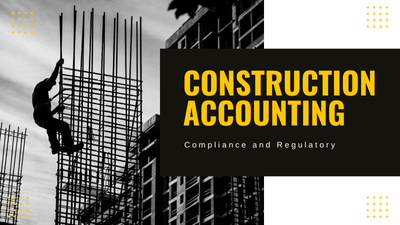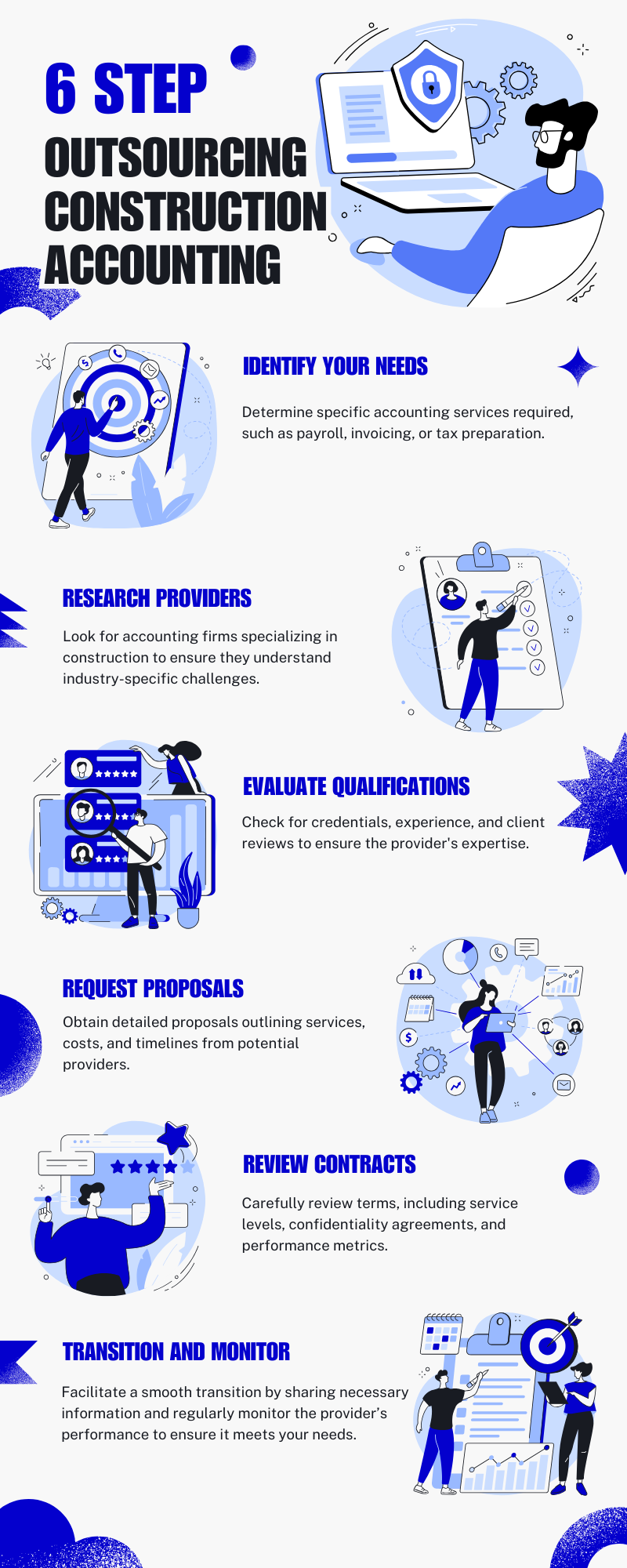
Compliance and Regulatory Issues in Construction Accounting
- July 30, 2024
- OHI

Construction accounting is a specialized field that presents unique challenges, particularly in terms of compliance and regulatory issues. The complex nature of construction projects, combined with stringent regulatory requirements, necessitates a thorough understanding of the applicable laws and standards. This blog explores the key compliance and regulatory issues in construction accounting and offers insights into how firms can navigate these challenges effectively.
Construction accounting differs significantly from standard accounting practices due to the nature of the industry. It involves managing project-based finances, dealing with multiple contracts, and tracking costs over extended periods. Key elements include job costing, revenue recognition, and managing change orders. Given these complexities, maintaining compliance and adhering to regulations is critical for construction firms.

One of the most significant compliance issues in construction accounting is revenue recognition. The Financial Accounting Standards Board (FASB) has established guidelines under ASC 606, which dictates how and when revenue should be recognized. Construction firms must adhere to these standards to ensure accurate financial reporting.
Failure to comply with ASC 606 can result in financial discrepancies and regulatory penalties. Construction firms must ensure their accounting practices align with these guidelines to maintain accurate and transparent financial statements.
Accurate job costing is crucial in construction accounting, as it impacts financial reporting and tax compliance. Job costing involves tracking direct and indirect costs associated with a project. Proper allocation of overhead costs is also essential to ensure that project costs are accurately represented.
Adhering to proper job costing and overhead allocation practices helps construction firms maintain accurate financial records and comply with tax regulations.
Tax compliance in the construction industry can be particularly challenging due to the various types of taxes that apply, including income tax, sales tax, and use tax. Construction firms must navigate complex tax regulations at the federal, state, and local levels.
Staying abreast of tax regulations and seeking professional tax advice can help construction firms minimize their tax liabilities and avoid penalties.
Labor compliance is another critical area in construction accounting. Construction firms must adhere to labor laws and regulations, including wage and hour laws, worker classification, and payroll reporting.
Non-compliance with labor regulations can result in significant penalties and legal liabilities. Construction firms must implement robust payroll and HR practices to ensure labor compliance.
Construction projects often have significant environmental impacts, making compliance with environmental regulations essential. Firms must adhere to laws governing air and water quality, waste management, and hazardous materials.
Compliance with ESG regulations helps construction firms avoid legal liabilities and contribute to sustainable development practices.
Ensuring workplace safety is a critical regulatory issue in the construction industry. Compliance with OSHA regulations is mandatory to protect workers from job-related hazards and injuries.
Adhering to OSHA regulations not only ensures compliance but also promotes a safe and productive work environment.
Contracts are the backbone of construction projects, and compliance with contractual obligations is essential for project success. Construction firms must ensure that all contractual terms are met, including project timelines, quality standards, and payment schedules.
Effective contract management practices help construction firms maintain compliance and foster positive relationships with clients and stakeholders.
Given the complexities of compliance and regulatory issues in construction accounting, firms must adopt proactive strategies to navigate these challenges effectively.
Investing in robust accounting systems and software can streamline financial management and ensure compliance with regulatory requirements. These systems provide tools for job costing, revenue recognition, tax reporting, and financial analysis.
Engaging professional accountants and legal advisors with expertise in construction accounting can provide valuable guidance on compliance and regulatory issues. These professionals can help firms navigate complex regulations, optimize tax strategies, and implement best practices.
Keeping up with changes in regulations and accounting standards requires continuous training and education. Construction firms should invest in ongoing professional development for their accounting and finance teams to ensure they remain informed and compliant.
Compliance and regulatory issues in construction accounting are complex and multifaceted, requiring careful attention and expertise. By understanding key compliance areas, investing in robust accounting systems, seeking professional guidance, and prioritizing continuous education, construction firms can navigate these challenges effectively. Maintaining compliance not only ensures legal and financial stability but also enhances the firm’s reputation and contributes to long-term success in the competitive construction industry.
Contact us for a customized NO OBLIGATION proposal for outsourcing your accounting activities.







